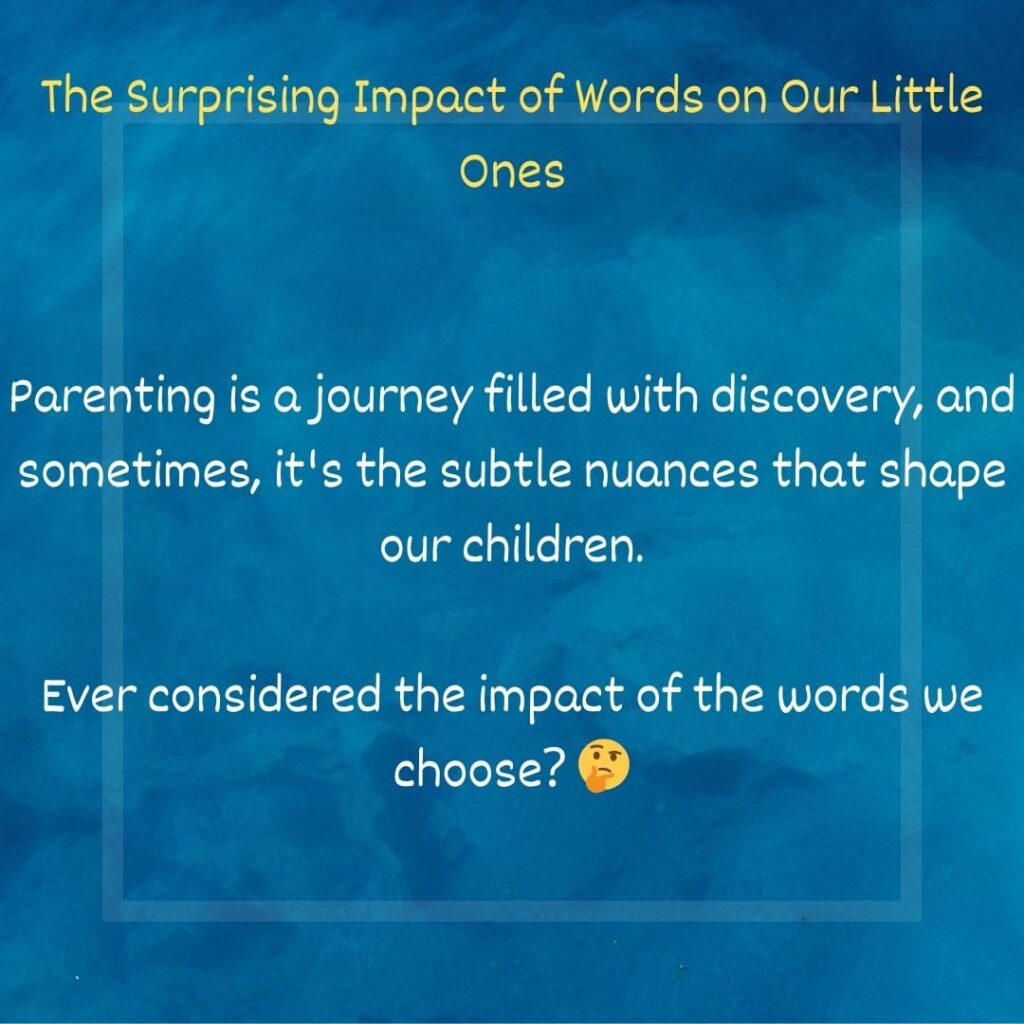-Nurturing Resilience
Parenting is a journey filled with moments that shape a child’s emotional development. One aspect often overlooked is the impact of words we choose when interacting with our little ones. In this blog, we explore a common scenario where the well-intentioned protection of a child might inadvertently lead to the development of a “cry baby” mentality. Let’s delve into the psychology behind this phenomenon and discover positive alternatives to foster resilience and emotional intelligence in our children.
The Scenario for “Impact of Words”:
Picture a scene where a relative enthusiastically engages with a child, playing and interacting. Suddenly, the parent intervenes with a well-meaning but potentially counterproductive phrase: “No no no, he will cry.” The child, who was on the verge of responding positively, interprets this cue and begins to cry. What unfolds here is not just a momentary inconvenience but a potential long-term impact on the child’s mindset.
The Psychology Behind the Words:
- Association of Crying with Attention:
- The child, hearing the words “he will cry,” begins to associate crying with attention and protection.
- Over time, this association may lead to a learned behavior where crying becomes a tool for getting what the child wants.
- Creation of a “Cry Baby” Mentality:
- The constant reinforcement of the idea that certain actions or interactions will lead to tears may contribute to the development of a “cry baby” mentality.
- The child may learn that crying is a reliable strategy to garner attention and prevent undesired actions.
Positive Alternatives:
- Positive Affirmations:
- Instead of using negative phrases, employ positive affirmations that promote a sense of security and positivity.
- For example, say, “Look, dear, Uncle/Aunty is playing with you. He is a good person!”
- For further insights into the impact of praising kids’ positive growth, explore ‘The Power of Praising Kids‘ Positive Growth.’
- Encouraging Gentle Responses:
- Encourage the child to respond in a gentle manner, fostering a sense of resilience and emotional intelligence.
- Reinforce positive reactions and teach appropriate responses to various situations.
- Modeling Healthy Emotional Expression:
- As parents, model healthy emotional expression by handling situations calmly and positively.
- Show the child that it’s okay to express emotions but in a constructive and gentle way.
Empowering Resilience: The Impact of Words on Childhood Development
Words carry immense power, especially in the formative years of a child’s development. By being mindful of the language we use and opting for positive affirmations, we can contribute to the nurturing of resilience and emotional intelligence in our children. Let’s foster an environment where our little ones learn to navigate emotions in a healthy and constructive manner, laying the foundation for their future emotional well-being.
Do Follow for More Tips and Inspiration:
- Instagram: Follow us on Instagram
- Pinterest: Follow our Pinterest profile
FAQs regarding “Impact of Words”
- Why is it important to be mindful of the language we use when interacting with our children?
- How can negative phrases like “he will cry” impact a child’s emotional development in the long term?
- What are some examples of positive affirmations that can promote resilience and emotional intelligence in children?
- How can parents encourage gentle responses from their children in various situations?
- What role does modeling healthy emotional expression play in teaching children to navigate their emotions effectively?
- Are there any specific strategies parents can use to help children understand and express their emotions in a constructive manner?
- How can parents reinforce positive reactions and appropriate responses to situations where children may feel upset or frustrated?
- What are the potential consequences of consistently labeling a child as a “cry baby”?
- Can you provide tips for parents on how to handle situations where a child becomes upset or cries?
- Are there any recommended resources or further readings available for parents interested in learning more about fostering emotional intelligence in children?
